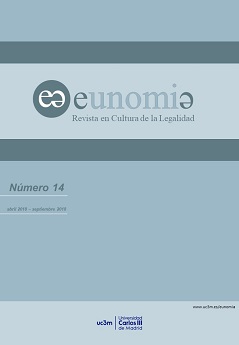Narratives of legality in the Ecuadorian constitutionalized hyper-presidentialism
Abstract
The arrival to power of Rafael Correa in 2007 involved various changes not only ideological but also political, channeled through a Constituent Assembly to conform to the precepts of the so-called "Citizen Revolution". The new Magna Carta established a greater number of executive controls and created new functions, such as the Electoral Power and Transparency and Social Control, which would also revolve around the decisions of the incumbent president. This, combined with the personality of Correa, generated a scenario of hyper-presidentialism, supported by popular elections that legitimize the changes made by the government. In the Ecuadorian case, what happened was a dissolution of legality through media action, in which the president's word was not only a rule of conduct, but also a perception that public activity cannot be discussed, exceeding its Constitutionally established competences. The present text, seeks to explore the mechanisms of existence of a decisionist discourse in the period of government 2013-2017 and its consequences in democratic governance, to demonstrate that the existence of an authority that escapes the power of the State can only be contained by the norm and the strength of democratic institutions, capable of improving the intensity of citizenship.
Downloads
Eunomía. Revista en Cultura de la Legalidad is a duly registered journal, with EISSN 2253-6655.
The articles published in Eunomía are –unless indicated otherwise– under a Creative Commons Attribution-No Derivative Works 3.0 Spain license. You can copy, distribute and communicate them publicly as long as you cite their author and the journal and institution that publishes them and do not make derivative works with them. The full license can be consulted at: http://creativecommons.org/licenses/by-nd/3.0/es/deed.es




